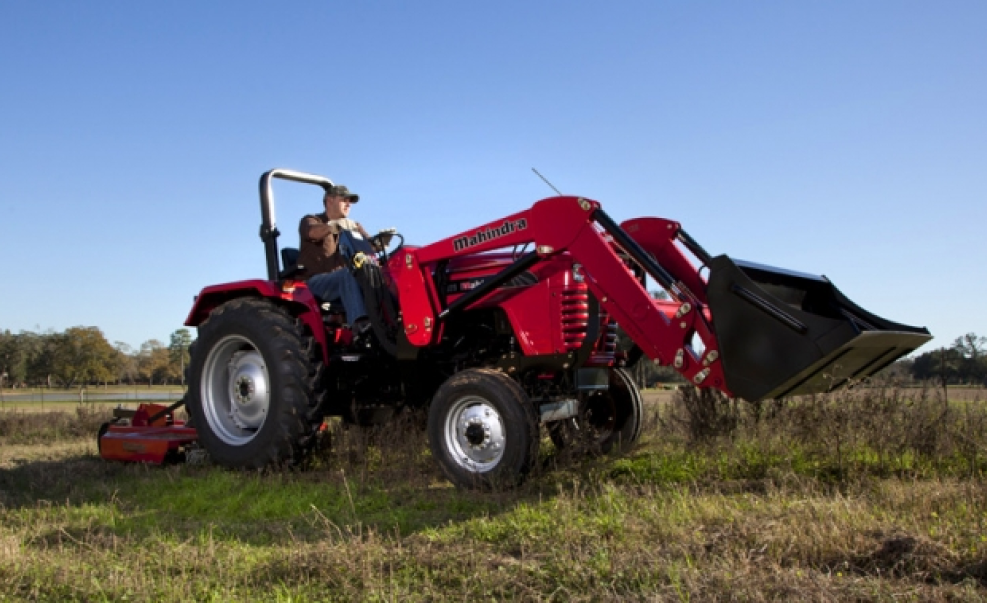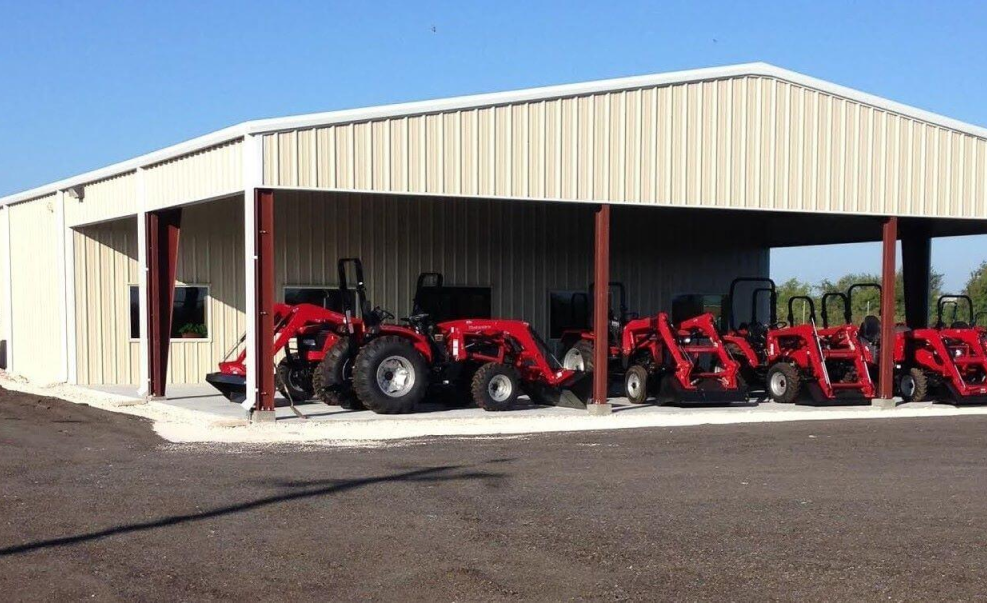Many people avoid using their compact tractors during the Winter. But some have to use them for work. So whether you are planning to put your tractor to use during the winter months or store it, there are multiple things you need to do to prepare and maintain compact tractors for the winter months ahead.
It is essential that you take proper care of your equipment during these chilly months to ensure that it stays functioning to the best of its ability. We’ve put together some expert tips to prepare and maintain compact tractors for work during the winter.
Preparing Your Compact Tractor
Most compact tractors offered by tractor dealers in Texas are adaptable to all seasons. However, manufacturers advise owners to go through these steps to prepare their compact tractors for winter jobs.
First, read your tractor’s operator manual and follow the steps to winterize your tractor. The owner’s manual offers excellent information on maintenance schedules. Even if you are well versed when it comes to your farm equipment, you may learn a few things by reading the user manual. Use that valuable information for your reference.
The next step is to check fluids and check the engine oil. You may have to top-up or change the oil depending on the quality. The same goes for the hydraulic system oil, transmission oil, and brake fluid. Always use superior quality oils and follow the guidelines in the instruction manual.
We recommend replacing the engine oil filter and other liquid or lubricant filters. Be sure to check the automatic braking system and the condition of the diesel pump and its filter.
Read More: How to Change The Oil in Tractor
It is imperative to check for the presence of water by examining the water-fuel separator. You can remove water deposits using the filter valve. This operation is essential to prevent water from entering the diesel fuel supply circuit, which can have very adverse effects.
Next, you should examine your auxiliary and compressor belts. Check your coolant and ensure it has the right mix to avoid freezing. The freezing of coolant could lead to costly repairs and damages. This step is essential if you haven’t replaced your coolant in three years.
Mahindra tractor dealers suggest owners keep a record of their compact tractor maintenance, so they know precisely when the last time each fluid and filter was changed.
Compact Tractor Maintenance Tips For Winter
When preparing your compact tractor for winter, it’s crucial to perform thorough maintenance to ensure its longevity and functionality.
Here are some essential tips:
- Wash your tractor with a pressure washer because excessive dirt can cause damage.
- Clean the radiator with an air compressor
- Apply grease at all points – shafts, joints, hinges, moving parts, etc.
- Add grease to all cylinder rods to keep them safe from corrosion.
- Clean the air filter with an air compressor to ensure a sufficient air supply to the engine.
- On parts with possible friction movement, apply long-lasting spray grease. It provides highly durable lubrication and corrosion protection in the most critical situations.
- Check tires – there should be proper inflation and no damage.
- Examine and ensure that the battery is in working condition.
- Check that all of the nuts and bolts are tightened. Next, pay attention to the pipes of the hydraulic system. These pipes contain high-pressure fluid for lifting. If you notice any cracks or leaks of fluid, visit a tractor repair shop.
- Examine the functioning of all the lights. Days become shorter in winters, and these lights will be essential in the evening.
- Ensure that all the safety devices like ROPS (Roll Over Protection Structure) are in place. If you are not storing your tractor, do not remove the ROPS.
Everyday Checks in Winters
The lifespan of your compact tractor will depend on how well you stay on top of the maintenance. The better you maintain compact tractors and other farm equipment, the longer it will run. Here are a few things you should regularly check when operating your tractor in winter:
- Coolant and engine oil levels
- Level of transmission oil and hydraulic oil
- Cleanliness of your fuel filter
- Fuel or oil leaks
- Lubricate the various lubrication points
- Check the brakes
- Tighten the screws and nuts
Recommended Reading: 7 Backup Tractor Parts to Always Have for Preventive Maintenance
Preparing Your Tractor and Implements for Snow Duty: Quick Tips
Winter brings the joy of fluffy snow, but also the responsibility of clearing it in order to maintain compact tractors effectively. Before the first blizzard blasts through, get your compact tractor and its trusty snow implements ready for action.
Pre-Season Checkup
Practice Run: When it comes to maintaining compact tractors in winter, don’t wait for the first snowfall to discover issues. Attach your snow blower, blade, or sweeper now and ensure everything connects and operates smoothly. Practice makes perfect (and prevents frantic troubleshooting in a snowstorm!).
Grease Patrol: Hit all grease points on your implements and tractor, including exposed cylinders and latch points. A light coat of grease goes a long way in keeping things moving smoothly.
Drive Line Inspection: Check the u-joints in all drive lines for wear or damage. They’re the silent heroes keeping everything spinning, so make sure they’re in top shape.
Wear and Tear Watch: Inspect wear items like cutting edges on blades or teeth on sweepers. If they’re showing signs of wear, replace them before they give out mid-job.
Gear Up, Literally: Check and change gearbox fluids as needed. Smooth operation in the snow depends on smooth gears!
Hydraulic System Check: Don’t neglect your hydraulic hoses. Check for leaks or damage and ensure couplers are functioning properly. Leaky hoses can leave you high and dry (and covered in snow).
Stay-Alert Maintenance:Winter weather can change fast. Get in the habit of checking your equipment’s condition throughout the season and tackle any compact tractor maintenance needs promptly. Don’t let small issues snowball into bigger problems during a storm.
Post-Work TLC:After each snow-clearing session, give your tractor some love. Cleaning it removes the grime and buildup, keeping things running smoothly. And don’t forget the battery! Regular use or a trickle charger will keep it happy and ready for action.
Tips for Storing Your Compact Tractor
Pre-Storage Preparation
Deep Clean
- Use a pressure washer or garden hose to remove stubborn dirt and debris.
- Pay close attention to areas like the engine, undercarriage, wheels, and attachments.
- Apply a degreaser to tackle grease and oil buildup.
- Allow the tractor to dry completely before proceeding.
Inspect and Repair
- Check for loose or missing bolts, worn belts, cracked hoses, or leaks.
- Lubricate moving parts according to the manufacturer’s recommendations.
- Repair any damage or replace worn components as needed.
- Refer to your owner’s manual for specific inspection and maintenance guidelines.
Fuel Management
- Choose a stabilizer that’s compatible with your tractor’s fuel type.
- Follow the manufacturer’s instructions for mixing and adding the stabilizer.
- Run the engine for at least 10 minutes to circulate the stabilizer through the fuel system.
Empty Fuel Tank
- If storing for an extended period, consider draining the fuel tank to prevent gum deposits and varnish buildup.
- Dispose of old fuel responsibly and safely.
Battery Care
- Disconnect the battery cables, starting with the negative terminal first.
- Clean any corrosion from the terminals with a wire brush or battery terminal cleaner.
- Store the battery on a flat, non-conductive surface in a cool, dry location, such as a garage or basement.
- Use a battery maintainer or trickle charger to keep it fully charged during storage.
Tire Maintenance
- Use a tire gauge to check and adjust tire pressure to the manufacturer’s recommended levels.
- Overinflate tires slightly to compensate for potential air loss during storage.
Elevate or Move Tractor
- If possible, place the tractor on blocks or jack stands to prevent flat spots on the tires.
- Alternatively, move the tractor periodically to distribute weight evenly and prevent tire damage.
Post Storage Preparations
Outdoor Storage
- Cover the tractor with a breathable, waterproof cover designed for outdoor use.
- Secure the cover tightly to prevent wind damage and water infiltration.
- Avoid using plastic tarps, as they can trap moisture and promote rust.
Indoor Storage
- Choose a storage area that is clean, dry, well-ventilated, and free from rodents or pests.
- Maintain a consistent temperature to prevent condensation.
Additional Tips
Prevent Rodents
- Place rodent repellents or traps around the storage area.
- Seal any openings or potential entry points.
- Inspect the tractor regularly for signs of rodent activity.
Routine Check-Ups
- Start the engine and let it run for 10-15 minutes every 4-6 weeks to circulate fluids and prevent components from seizing.
- Check tire pressure, fluid levels, and battery charge during these check-ups.
Documentation and Safety
- Keep manuals, documents, and maintenance records organized and accessible.
- Implement security measures like locks or alarms if storing in an accessible area.
By following these tips, you can transform your compact tractor from a summer sunbather into a winter warrior, ready to conquer any snowfall with ease. So enjoy the snow season, knowing your trusty equipment is prepped and ready to go!
Compact Tractor Maintenance With Your Trusted Mahindra Tractor Dealer
Taking good care of your tractor and regularly servicing it will be extremely beneficial in the long run. If you have accessories on your equipment, such as a GPS, we advise you to remove them and store these accessories in a safe place during the winter months. We also recommend that you check the levels of the antifreeze liquid from time to time to cope with the low temperatures. This will prevent your radiator from freezing.
Finally, if you carry out the maintenance of your tractor yourself, you must have the necessary tools to do so. Consider keeping crown wrenches, sockets, filter wrenches, torque wrench, etc., within reach in case of any unexpected incidents. If you follow these key maintenance steps and the manufacturer’s instructions, you will extend the performance and life of your equipment.
Diamond B Tractors & Equipment, your trusted Mahindra tractor dealer, offers a wide variety of tractors and equipment tailored to your needs and budget. Plus, visit our tractor repair shop for expert assistance and guidance.



